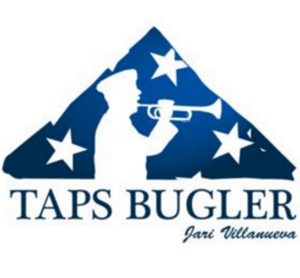A good news story about Taps and a WIN for the true story.
Below is a photo is the “Story of Taps” that was on the US Department of Veterans Affairs website for years.

Here are my comments:
-Tattoo and Taps (Lights Out) are two different calls altogether. The confusion arises from The French call of Extinguish Lights (“L’Extinction des feux.”) which uses the same music as the Civil War Cavalry Call of Tattoo. In the Civil War Infantry manual music is the same but but the call is called Extinguish Lights and is used as the final call of the day.
-The word “Taps” actually comes from the Three Drum Taps used as a signal to extinguish lights. soldiers called the signal “Drum Taps” or “Taps” and when the new call came into use they started referring to it as “Taps” The US Army, although it uses the new music of Taps in it’s manuals as of 1874, it does not call it Taps officially until 1891.
-The music Butterfield actually revised was from an outdated call of Tattoo (this is part of the confusion) that was found in the 1835 Infantry manuals written by Winfield Scott. It is called by brass scholars “The Scott Tattoo” to identify the signal. I believe I’m one of the first to make that designation. The Scott Tattoo has in it the notes to our present day Taps. The Scott Tattoo is NOT the same music as the French “L’Extinction des feux.”
More on this can be found at
https://www.tapsbugler.com/the-evolution-of-taps/
-Not certain for sure if Confederate buglers adopted the call but it would make sense that many did since they may of heard it being sounded, The music for Taps first appears in the 1874 Army Manual written by General Emory Upton. Upton radically changed infantry tactics during the latter part of he Civil War and desired to codify the calls. He actually changed the bugle signals-getting rid of most of the French calls which were used. The result was many new bugle calls including the new call for Extinguish Lights (or Lights Out). This is Taps. But the name of Taps does not change in the Army manuals until 1891, although everyone refers to that call of “Taps” (The Army moves slow)
-This is pretty much considered a true story of how Taps became associated with funerals. It is commemorated in the chapel at Fort Monroe VA
-I had once thought that Taps was sounded at Stonewall Jackson’s funeral and researched this in Lexington VA and at VMI. There is no proof that this happened. No newspaper accounts or any diaries that mention it.
-No military protocol calls for using Taps as the music to lower the flag. Taps is not an honors music for the US Flag. To The Color is more appropriate. The manual of 1891 makes the first reference to how military funeral honors are done with firing of three volleys and Taps sounded. This practice was no doubt done in the decades prior. And the 1891 manual also uses the name Taps for the first time in an official document.
UPDATE
For years I had contacted the VA to ask them to revise the information on their website. At times I thought it would be taken care of but it remained on the site. Unfortunately, a lot of the information (including the use of Taps to lower the flag) was appearing on other sires on the internet.
Earlier this year, thanks to a FB friend and follower who is married to an Army Officer, I reached out to Pam Powers, VA Chief of Staff. She referred my inquiry to the right person who read my comments and accepted my revision.
HERE IS THE NEW REVISION TO THE STORY OF TAPS
https://www.va.gov/opa/publications/celebrate/taps.pdf
I am thankful to Chief of Staff Powers, who is a retired Air Force Colonel, to helping get the correct information on the History of Taps.
#TapsBugler #StoryofTaps #Taps #TapsForVeterans #TapsAcrossAmerica





Thank you Mike!
Thanks Jari for your posts about TAPS. You are my go to guy for correct information on the subject.
I refer all my friends to you when the topic of TAPS comes up in conversations.
Usually after our Thornaplle Wind Band rehearsals on Thursday evenings.
We are performing “Light Cavalry Overture” which contains lots of passages
of flourishes for the trumpets,. and a beautiful section for woodwinds. Our guest conductor from Olivet College here in Michigan usually pushes the limits of our
abilities (lots of us over 70 now) especially the last 20 measures which makes for quite an exciting ending to say the least. I love sitting next to my son as we
challenge each other to “play what is written” and not dumb it down. When he is
playing every note and I struggle,….he just says,…you’ll get it before we do the concert. I do think at times I should slide toward the lower notes, but when I do I think he misses me. 🙂 We began the Band in 1996 and now are finding younger people who will keep it going (we hope). We do need a new Director as ours is
ready to be in the percussion section. Would you like to move to Grand Rapids (Lake Odessa actually) Michigan.
Thanks for your articles. Sorry I got off track…….AGAIN!
Mike Scobey
Question: Have you ever heard of “The Lincoln Avnengers”?